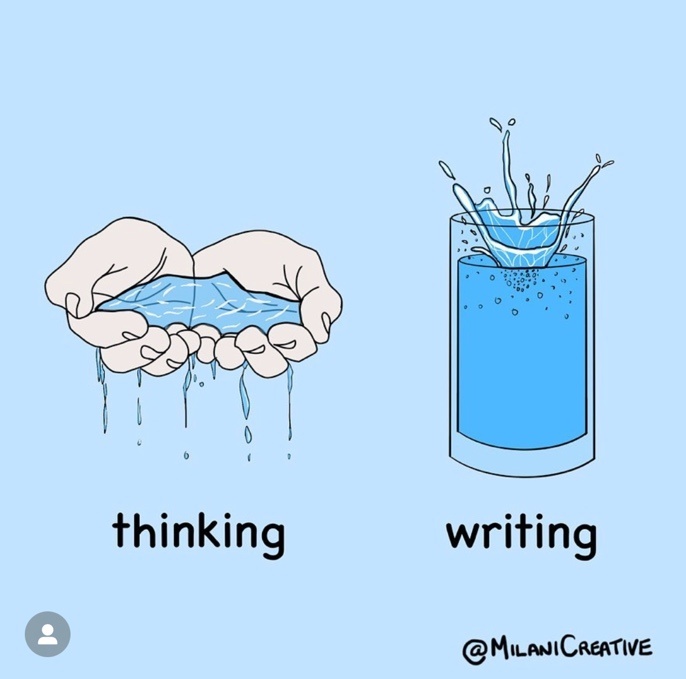Journaling our thoughts and reflections can help clear our minds of clutter, sort things out, and gain deeper insight and understanding. This helps us become better anthropologists of ourselves.
Mari L. McCarthy writes in The Great Book of Journaling, “Over time, you will start to see the positive changes journaling is making in your life — giving you a safe place to blow off steam, process emotions, explore ideas, or set goals. “
You don’t have to be a good writer to journal – anyone can journal and it can be effective if we don’t criticize ourselves while doing it.
Journaling is for your eyes only. Some people like to read their old journals, some like to have a ritual of burning their old journals, and some (like me) just use our journals to get the thoughts out of our heads and onto paper and never read them again. You will find what works best for you once you jump in.
To get started and develop a consistent routine it helps to set your timer for just 2 minutes and begin writing, don’t get hung up on your penmanship, your grammar, or if it sounds coherent – just let your consciousness flow out onto the paper without judgment or criticism. You may find that 2 minutes is up and you still have more to write.


This is how you get started:
1. Find a nice journal that feels good and looks appealing – something you want to come back to. You’ll be more inclined to use it.
2. Is there a consistent time every day when you can take a few minutes for reflection? Maybe with your morning coffee or right before bedtime would be a good time.
3. Start your timer for two minutes and begin writing.
You might be asking… “Well, what do I write about?”
Daily Intentions and Reflections
Begin your day with an intention – what do you want to be intentional about today? Where do you want to focus your attention on?
End your day with reflection – using discernment rather than judgment, notice any impediments that came up in focusing your intention. Notice any trends here as well as other things your attention takes notice of.
A Few More Prompts
Begin to shift from what do I need to change or be to what if I already have it in me? What does personal development look like for me? How do I keep getting in my own way? How does my inner critic present itself? What do I really want? And What’s stopping me?
Notice patterns and trends in your reflections and thoughts and deepen your inquiry into these patterns. These patterns provide an opportunity to discuss with a coach or self-exploration.
Do you already take time for reflection? Share with us how you’ve developed your reflection routine and what prompts you use.
